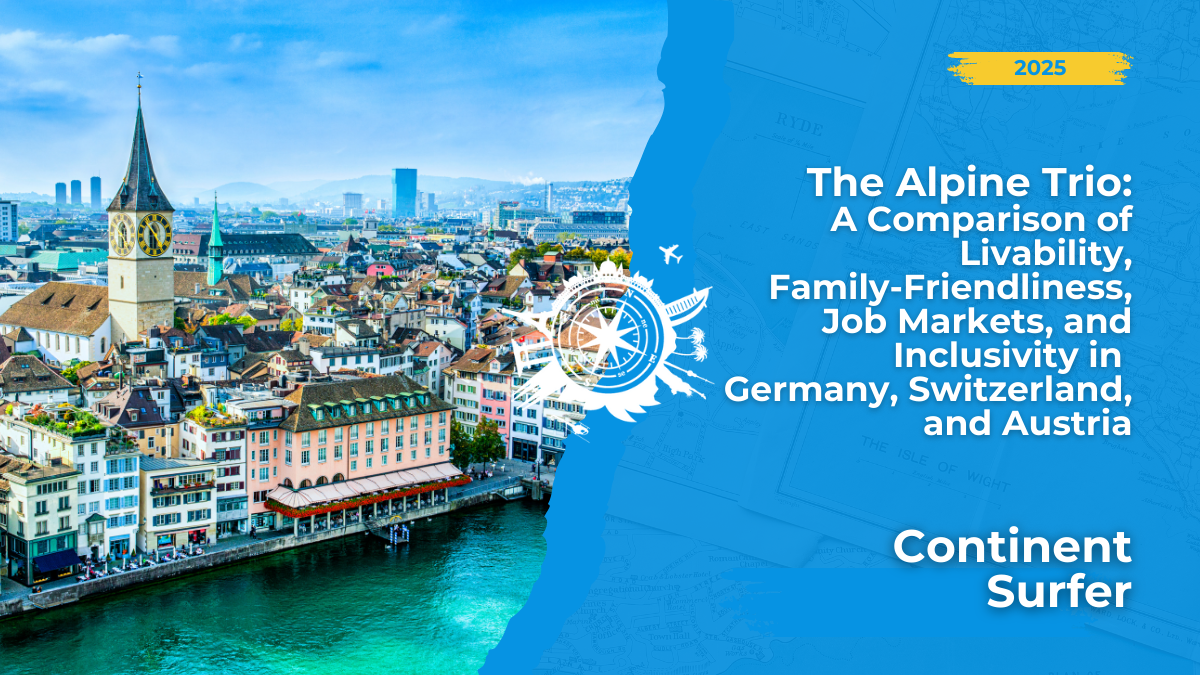The Alpine Trio: A Comparison of Livability, Family-Friendliness, Job Markets, and Inclusivity in Germany, Switzerland, and Austria
Germany, Switzerland, and Austria, often grouped together due to their shared language and cultural heritage, offer distinct experiences for those considering a move.
written by: BOGI – Continent Surfer
This article delves into their livability, family-centric environments, job market accessibility, and the welcoming nature of their societies, drawing on various online resources.
Livability: High Standards Across the Board
All three nations consistently rank high in global livability surveys. Switzerland often tops these lists, renowned for its stunning natural landscapes, efficient public services, and high quality of life. Cities like Zurich and Geneva offer a blend of urban sophistication and access to nature. Germany boasts a diverse landscape, from bustling metropolitan areas like Berlin and Munich to picturesque countryside. Its strong infrastructure, efficient public transport, and vibrant cultural scene contribute to its high livability. Austria, with its imperial history and Alpine scenery, offers a charming and safe environment, particularly in cities like Vienna and Salzburg. Its focus on culture and outdoor activities makes it an attractive place to live.

Family-Centric Environments: Strong Support Systems
These countries generally prioritize family well-being. Germany has made significant strides in family policies, offering parental leave (Elternzeit) and a growing network of childcare facilities (Kitas). While the system can vary by state, the trend is towards greater support for working parents. Switzerland also offers parental leave, though the duration and specifics can differ between cantons. It is known for its safe environment and excellent education system. Austria has a strong emphasis on family benefits, including generous maternity leave and family allowances. All three countries boast high-quality healthcare systems, which is a significant factor for families.

Job Market Accessibility: Opportunities Abound, but Language Matters
Finding employment in these countries is generally feasible, particularly for skilled workers. Germany has a robust and diverse economy, offering opportunities in various sectors, including engineering, automotive, and technology. Switzerland is known for its strong financial sector, pharmaceuticals, and high-tech industries. Austria also has a stable economy with opportunities in manufacturing, tourism, and services. While English is often spoken in professional settings, especially in international companies, proficiency in German is usually a significant advantage, and sometimes a necessity, for broader job market access and integration into local communities.

Inclusivity: Progress and Ongoing Efforts
While these countries share a reputation for being safe and organized, their levels of inclusivity for foreigners can vary. Germany has made considerable efforts to integrate immigrants and refugees in recent years, with a diverse multicultural landscape in many cities. However, bureaucratic hurdles and occasional social tensions can still exist. Switzerland, while generally welcoming, can sometimes be perceived as more reserved, and the high cost of living can be a barrier to entry. Austria, with its historically homogenous population, has been adapting to increasing diversity. While mostly safe and tolerant, newcomers may encounter some cultural differences and a strong emphasis on the German language for social integration.
Conclusion:
Germany, Switzerland, and Austria each offer a high quality of life, strong support for families, and promising job markets. However, they also present distinct challenges and opportunities. Switzerland stands out for its pristine environment and high standard of living, while Germany offers a more diverse and, in some aspects, potentially more accessible environment for newcomers. Austria provides a charming and culturally rich experience with a strong emphasis on family. Ultimately, the best choice depends on individual priorities, career goals, and comfort level with the local language and culture.
Did you know?
🤯 Switzerland has four national languages: German, French, Italian, and Romansh! This linguistic diversity contributes to its unique cultural landscape. 🇨🇭🗣️

Like what we do?
If so, please support us, every little counts and is much appreciated!
You will help us to come up with useful information regularly, so please support us every once and a while or even monthly! Thank you!
Source(s):
- Expat Insider – InterNations (This website provides various rankings and insights into expat life in different countries.)
- OECD Family Database (Offers comparative data on family policies across OECD countries, including Germany, Switzerland, and Austria.)
- Make it in Germany (Official website for international professionals looking to work and live in Germany.)
- Study in Switzerland (While focused on studying, this site also provides information on living in Switzerland.)
- Welcome to Austria – Migration and Integration (Official website providing information on migration and integration in Austria.)
Join the Continent Surfer community!
Subscribe to our newsletter and be the first to receive the latest news, useful tips, and exclusive offers!
Comment

